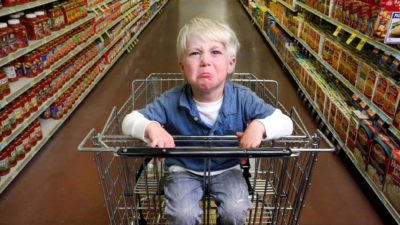The market may be charging higher, but the same cannot be said for the Bubs Australia Ltd (ASX: BUB) share price on Monday morning.
In early trade, the junior infant formula company's shares are down 3.5% to 42 cents.
Why is the Bubs share price sinking?
The Bubs share price has come under pressure on Monday after the release of the company's first quarter update.
That update reveals that Bubs delivered a 28% increase in gross revenue to $23.6 million during the quarter.
This reflects an 18% increase in Australian sales, a 145% increase in international sales (thanks largely to US formula shortages), and a disappointing 21% decline in China sales.
In the United States, the company revealed that it has now captured a 0.4% market share. Though, with supply shortages now easing, time will tell if parents ditch Bubs and go back to previous brands once they are in stock again.
Unfortunately, things don't look overly positive for the China business in the immediate term, which explains some of the weakness in the Bubs share price today. The company highlights:
Across the infant formula category, a significant number of brands have oversupplied the market, including local Chinese brands. This has created a significant decline in margin across all distribution partners. In addition, the cost of doing business has also increased on cross-border e-commerce, particularly as it relates to advertising spend. The category issue was exacerbated through a subdued result during the 6.18 shopping festival, and the oversupply by other brands is expected to continue through to the upcoming Double 11 festival.
And while management believes it has a solution to this with the introduction of a Manufacturer-to-Consumer (M2C) model, it will take time to bear fruit (if successful). It explained;
In the short term, we expect China sell-in revenue to be constrained throughout the second quarter due to the phasing of the recruitment channel transitioning to the new M2C model but remain optimistic on positive momentum returning post Chinese New Year.
Cash burn continues
Also potentially weighing on the Bubs share price has been its inability to curb its cash burn.
Despite its strong top line growth, Bubs reported another operating cash outflow of just under $8 million for the quarter. This was largely due to the company spending $27.9 million on product manufacturing and operating costs.
But thanks to the company's $63 million capital raising during the quarter, Bubs ended the period with a cash balance of $64.6 million. Management notes that this and unused finance facilities is sufficient to fund the business operating activities for nine quarters.









